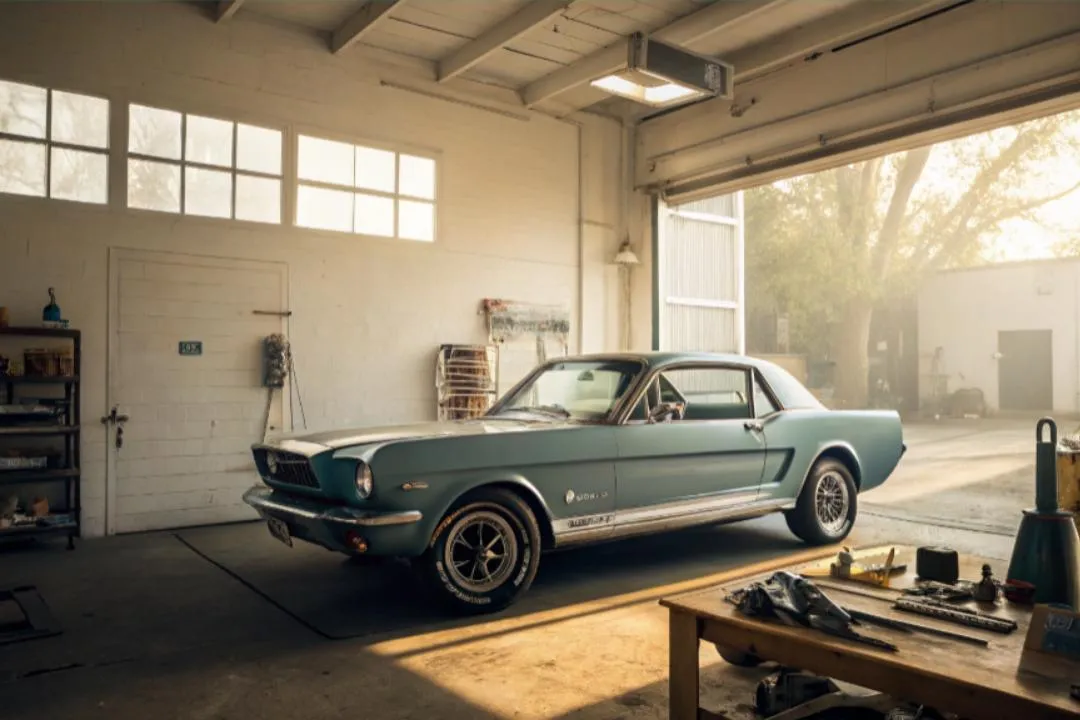
How to Prove Originality for Classic Car Registration
Owning a classic car links you to automotive history but registering it means navigating a tough process to prove its realness. Collectors deal with challenges like checking vehicle age ensuring period correct restorations and meeting state specific rules. These steps confirm a car status as a classic or antique qualifying it for special plates or breaks. Docs checks and restoration standards play a big part in this.
This guide outlines the must criteria for registering a classic car offering clarity on how to keep its historical value while getting legal okay.
Understanding Classic Car Classification
Classic and antique car classes vary by state and group shaping registration needs. A classic car is usually 20 to 40 years old while an antique car is often over 40 years or from specific times like 1915 to 1948 per groups like the Antique Automobile Club of America. For example California sees vehicles over 25 years as classics while Florida needs 30 years. These differences decide okay for historic vehicle plates emissions skips and limited use policies restricting cars to shows or parades.
States enforce model year cutoffs to keep historical accuracy. Texas classes cars over 25 years as classics but needs specific plates for antiques. Collector vehicles must keep original or period correct features avoiding modern changes. Knowing your state rules like California 25 year rule ensures follow and simplifies the registration process setting the stage for proving realness. For state by state, our classic car registration any state guide compares rules you cannot ignore do not let wrong state cost you.
Proving Originality: Restoration and Authenticity
Restoration is central to proving a classic car originality ensuring it meets classic car authenticity criteria. Vehicles must align with original maker specs using Original Equipment Manufacturer or OEM parts for engines upholstery and exteriors. A 1965 Ford Mustang restored with factory correct carburetors and chrome trim qualifies but modern additions like digital dashboards disqualify it. Classic car clubs set rigorous standards needing detailed records of parts and processes.
Authentic restorations boost a car classic car valuation. A 1970 Chevrolet Chevelle restored to factory specs increased its appraisal by thousands. Over restoration such as too much chrome risks DMV rejection. Classic car restoration for registration demands genuine parts for classic cars sourced from specialty suppliers or salvaged from era appropriate vehicles.
Document all work with receipts and photos. States like California may need classic car inspection for registration to verify authenticity ensuring compliance with originality standards for classic cars.
Essential Documentation for Registration

Proper docs prove ownership and realness streamlining classic car registration needs. Must docs include:
Title Certificate: Verifies legal ownership matching the Vehicle Identification Number or VIN.
Sworn Bill of Sale: Confirms buy details supporting proof of ownership.
VIN Check: Validates the car identity must in states like Texas.
Classic Car History Reports: Trace ownership and accident history.
Extra records strengthen your case:
Classic Car Build Sheet: Lists factory specs like engine type.
Classic Car Service Records: Document upkeep showing care.
Restoration Receipts: Prove classic car docs for registration with OEM parts.
Classic Car Provenance: Sets historical significance through ownership records.
Missing titles common with older cars need title recovery or bonded titles. A 1955 Thunderbird owner resolved this with a sworn affidavit. Organize docs digital for efficiency. Street Legal Hookup platform simplifies this process ensuring your papers meet state rules for classic car registration. Learn more about our streamlined docs services.
Unlock the full potential of your classic with our expert guide to Classic Car Registration Across the USA. Don’t let state rules keep your treasure off the road.
Navigating State-Specific Regulations
Registration rules vary widely affecting classic car title and registration. California exempts cars over 25 years from emissions but may impose use taxes. Texas needs annual vehicle checks for classics unless classed as antiques while Montana skips checks easing follow. Historic Vehicle Classification plates limit use to events like parades with mileage restrictions such as 2,500 miles yearly in some states.
High tax states scrutinize out of state registrations. Registering in Montana provides a streamlined registration process but still requires compliance with your home state’s laws. A 1969 Dodge Charger registered in Montana benefited from simplified DMV procedures. Check your state’s DMV website for specific regulations, including roadworthiness checks or requirements for unmodified engines.
California DMV and Texas Classic Vehicle Registration sites offer detailed guidelines. Understanding these rules ensures your car qualifies for vintage car registration or antique car registration without unexpected penalties. For Montana perks, our montana classic car reg guide reveals saves you cannot miss do not pay more than needed.
VIN Verification and Inspection Requirements
Classic car identification numbers are critical for registration confirming a vehicle identity. VIN verification ensures the VIN matches docs preventing issues with stolen or rebuilt cars. In California DMV officers check VINs while Texas uses certified inspectors. A 1962 Corvette VIN check confirmed its original frame avoiding delays. Pre 1981 VINs non standardized need classic car verification through historical records or frame checks.
Inspections assess classic car preservation for registration. California checks safety features like brakes while Texas verifies classic car qualifications for registration such as unmodified engines. Montana no inspection policy simplifies the process. A 1957 Chevy Bel Air passed Texas checks with its original V8 documented.
Prepare with classic car expert appraisal records and VIN photos. These steps ensure compliance with classic car certification standards securing classic car historical license plates. For VIN mismatches, our car title VIN mismatch tips has solutions you will regret missing do not let errors stop your plates.
Benefits of Montana LLC Registration

Montana LLC registration offers a legal way to simplify historical vehicle registration. Vehicles over 11 years qualify for permanent plates, eliminating annual renewals. A 1972 Porsche 911 owner completed the process efficiently using this method. The process involves:
Sending vehicle details online.
Forming an LLC to handle DMV papers.
Getting plates in 3 to 6 weeks with temp tags in one day.
Montana skips classic car inspection and emissions tests ideal for complex restorations. Insurance must list the LLC as an additional interest. High tax states may question this setup so verify local compliance. This approach supports registering a restored classic car aligning with classic car ownership history and classic car appraisal needs making registration efficient and cost effective. For tax perks, our classic car tax savings Montana guide reveals saves you cannot afford to ignore.
Your Reliable Partner for Classic Car Registration
Street Legal Hookup brings years of expertise in vehicle registration helping thousands of collectors register classic cars nationwide. Our team navigates complex DMV processes ensuring compliance with authenticity and state regulations. We specialize in Montana LLC registrations streamlining paperwork and delivering plates in as little as three days.
A client praised My 1965 Mustang registration was hassle free with permanent plates delivered fast! Our secure online platform and dedicated account managers provide personalized support making us a trusted partner for classic car collectors seeking efficient legal solutions.
Frequently Asked Questions
What qualifies a car as a classic for registration?
A car qualifies as a classic if it is typically 20 to 40 years old depending on state rules like 25 years in California 30 in Florida. It must be preserved or restored to original specs and used for shows or occasional drives per DMV and Antique Auto Club of America guidelines.
How do you authenticate a classic car?
Authenticate a classic car with build sheets restoration receipts and service records showing OEM parts and period correct work. Classic car clubs or expert appraisers verify authenticity ensuring compliance with DMV originality standards.
What documents are required to register a classic car?
You need a title certificate sworn bill of sale VIN verification and proof of ownership. Supporting documents like build sheets service records and restoration receipts prove authenticity critical for registration requirements.
How to get a VIN for a classic car without one?
If a VIN is missing apply for a state assigned VIN through the DMV with proof of ownership like bill of sale affidavits. Title recovery services simple this for classic car title and registration.
What is legally considered a classic car?
A classic car is legally 20 to 40 years old used for limited purposes like shows and restored to original specs per state DMVs. Antique cars 40 plus years or 1915 to 1948 have stricter historical criteria impacting historic vehicle registration.
How to check a classic car’s VIN before 1981?
Pre 1981 VINs vary by maker and are not standardized. Use classic car history reports check VIN plates on the frame or engine or consult DMV records to meet classic car verification needs.
Conclusion
Registering a classic car involves proving its originality through meticulous restoration thorough documentation and adherence to state regulations. From VIN checks to navigating DMV requirements collectors face multiple steps to secure classic car status.
By understanding vehicle classifications, preparing paperwork and addressing state specific rules you can achieve legal recognition for your car. Street Legal Hookup expertise simplifies this process offering a Montana LLC solution that streamlines registration and reduces costs.
Our team ensures your vehicle meets authenticity standards letting you enjoy your classic car with confidence. Begin your registration journey with Street Legal Hookup for a seamless experience.
Learn more in our complete guide on how to register your classic car: complete step-by-step guide to navigate paperwork, eligibility rules, and plate options with confidence.



